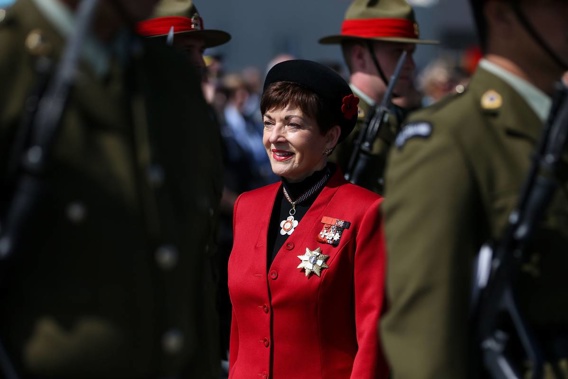
Thousands of people have gathered on the rugged shores of Turkey's Gallipoli peninsula to mark the 103rd anniversary of Australian and New Zealand forces making their first bloody landing there.
It was the first major battle of World War I for Australian and New Zealand troops, who landed in a hail of bullets that generated waves of grief in both nations.
Australian Home Affairs Minister Peter Dutton has joined a sea of Aussie and Kiwi pilgrims gathered at Anzac Cove to honour those who died in an ill-fated attempt to take the Ottoman Empire out of the war.
Dutton said the diggers who came ashore helped forge Australia's national identity. "A legacy of resilience, determination, facing decisions and sights we would never wish upon anyone," he said.
"We feel we know them, the Anzacs. Not only because they fought to defend us, and sacrifice for us, but it is also the power of that sacrifice ... and values they embody and bequeath to us survive to this very day.
"They are at the core of our people and our purpose. And for this, we will be eternally grateful. Lest we forget."
Wreaths were laid after a second commemorative address by New Zealand Governor-General Dame Patsy Reddy, who began and ended her speech in Maori.
While heavy losses were expected by the government ahead of battle, the magnitude of the campaign's "butcher's bill" was unprecedented, she said.
"There is sacredness in tears. They are the marks of power. They are the messengers of overwhelming grief and unspeakable love," Reddy said.
"As we honour our forebears and their service to our countries, we affirm our commitment to work together to achieve and maintain collective security and peace."
Earlier, New Zealand's army chief Major General Peter Kelly painted a picture of the horrors Aussie and Kiwi troops faced that day, with machine guns pointed at them from cliffs still shrouded in darkness.
"For hundreds, it would be their last day on earth. In total, during the fierce and confused fighting of the first three days of the campaign, more than 1000 Anzacs were killed," he said.
"Their deaths created waves of grief which swept across our homelands." Maj Gen Kelly said Australians and New Zealanders would continue to visit Anzac Cove on April 25 each year.
"They are drawn to Gallipoli because the passing of time has not diminished the tragedy of what occurred here."
Six students from East Loddon College in central Victoria were among those who lined the coastline, standing with pupils from their Turkish sister school.
Principal Steven Leed told the Seven Network it was the first time the schools had come together for the service.
"I think it shows that peace is possible and that schools on opposite sides of the world can come together and share in a significant day such as this and have the same values and beliefs," he said.
The service continued with an Ode of Remembrance in Maori and English, the traditional Last Post, minute's silence and Reveille, before the national anthems of Turkey, New Zealand and Australia.
- AAP
Take your Radio, Podcasts and Music with you









